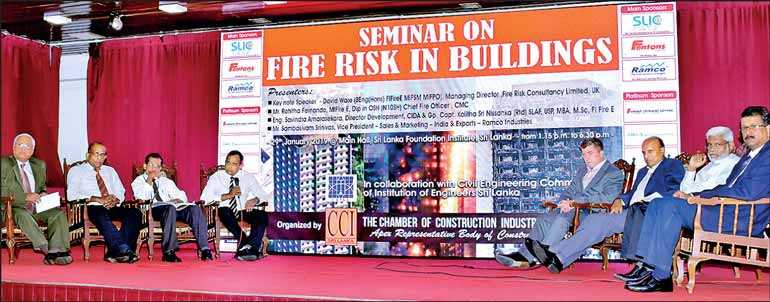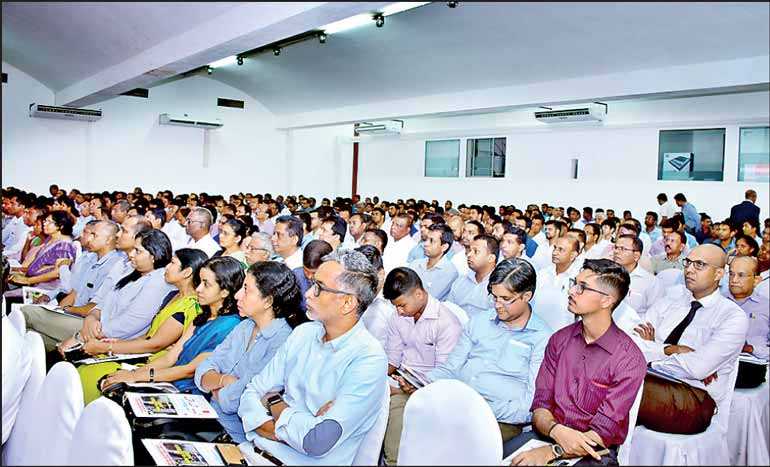Thursday Feb 19, 2026
Thursday Feb 19, 2026
Friday, 15 February 2019 00:00 - - {{hitsCtrl.values.hits}}


The Chamber of Construction Industry Sri Lanka held a seminar on the fire risk in buildings on 29 January at the Sri Lanka Foundation Institute, Colombo.
The seminar had a large participation evidenced from the numerous representative groups who participated. Amongst them were the architects and contractors and condominium developers, quantity surveyors, civil, mechanical and electrical engineers, consulting engineers and other professionals in the construction field.
The Government regulatory authorities and municipalities were also represented as well as solution providers in fire safety products, and last but not the least condominium dwellers and concerned citizen groups were also present at this seminar.
On display was a mini exhibition of fire safety solutions by the sponsors whose stalls were patronised by the participants.
At the commencement of the seminar, David Ware, a leading fire safety consultant who came over from the UK as the keynote speaker, spoke on the lessons learnt from the famous Glenfell disaster in the UK. Taking a world view on major fire disasters in buildings he pointed out the use of inappropriate cladding material, shortcomings in design scrutiny and gaps in certification procedure as well as inadequate equipment to ward off fire as some reasons to spark off fire disasters.
In his second session, Ware spelt out the pros and cons of modern fire-fighting rules, regulations and systems currently in place and the evacuation methods currently adopted and of the future scenario in fire-fighting.
The Chief Fire Officer of the Colombo Municipality spoke of the present regulations and mitigatory methods adopted in the prevention and control of fire in the city and the greater metropolitan area.
The guest speakers from the Construction Industry Development Authority (CIDA) spelt out the very comprehensive fire regulatory regulations that are now published under the construction industry Development Act No. 33 of 2014 and mentioned a very important fact that citizens can complain to the CIDA if these conditions have not been met by the owner/developer and that it is possible to prosecute in civil courts in this regard.
There was also a product presentation by a sponsor of modern dry wall construction and its resistivity to fire and his ancillary products.
The much-awaited question and answer session took place with concerned citizens inquiring and suggesting various measures to mitigate the risk of fire hazards in their areas.
This very important and timely topic was well received by the public. The Chamber of Construction Industry Sri Lanka will continue to surface topical issues in the industry for the awareness of the public and for public debate so that Sri Lanka would be made a more conducive place for all its citizens to live in.